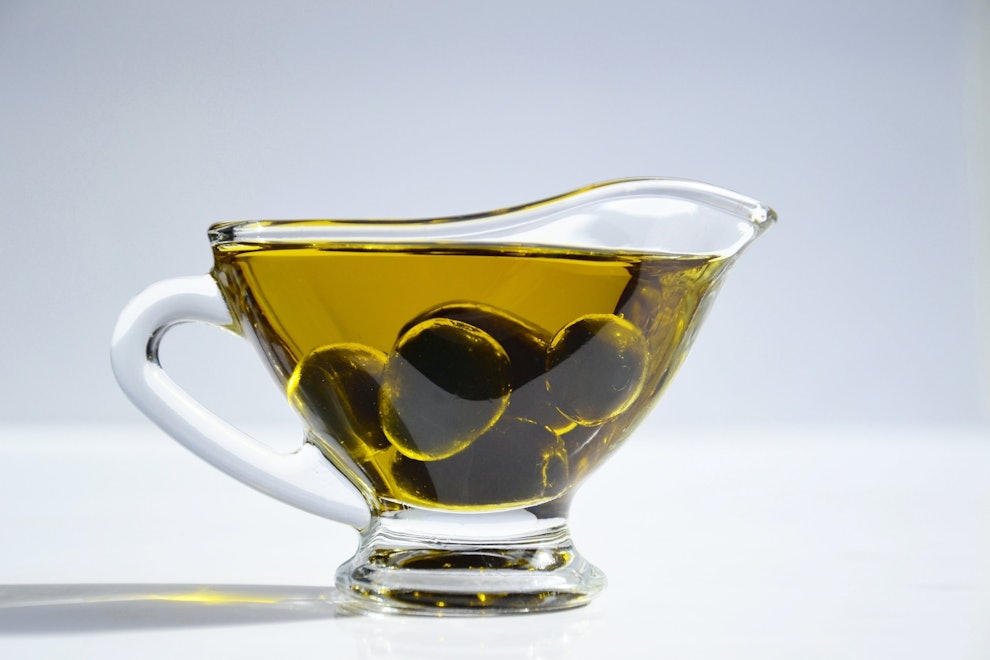Discovering Mediterranean Diet Benefits: Top 5 Tips For Starting A Mediterranean Diet
Article at a glance
The Mediterranean diet is a healthy eating pattern based on the eating styles found around the Mediterranean region.
This diet plan consists of eating plant-based foods such as fruits and vegetables as well as whole grains, nuts, beans, seafood, lean poultry, and extra virgin olive oil and other healthy fats.
There are numerous health benefits associated with the Mediterranean diet.
There are a few downsides to the Mediterranean diet that must be taken into account as well.

A Mediterranean-style diet has been touted as one of the best eating plans to follow for overall health and wellness. In fact, the Mediterranean diet has even been named the top healthy diet of 2023 by U.S. Health News.
Learn more about the Mediterranean diet including potential health benefits, drawbacks, food recommendations, and more, read below.

What Is The Mediterranean Diet?
The Mediterranean diet is an eating plan modeled after the traditional cuisine in the 21 countries that border the Mediterranean Sea including Greece, Italy, Croatia, Lebanon, and more. Some research has shown that people living in the Mediterranean region are healthier than those who follow a standard American diet, with a lower risk of chronic health conditions.

What Are Considered To Be Mediterranean Diet Foods?
There is variation between the foods consumed in the Mediterranean, which means that it’s difficult to truly define which foods are specific to the Mediterranean diet. However, in most cases, the Mediterranean diet primarily consists of plant-based foods such as fresh fruits and vegetables. The diet plan is also usually low in animal product and meat consumption. Fish and seafood is usually added to meals once or twice weekly. The Mediterranean diet’s main source of added fat is in the form of olive oil.

Foods to Eat On The Mediterranean Diet
In general, foods to eat on the Mediterranean diet include:
Vegetables (i.e. broccoli, kale, tomatoes, spinach)
Fruits (i.e. apples, bananas, oranges)
Nuts, seeds, nut butters (i.e almonds, pumpkin seeds, peanut butter)
Legumes (i.e. beans, peas, lentils)
Whole grains (i.e. oats, brown rice, whole wheat pasta)
Fish and seafood (i.e. salmon, clams, shrimp)
Poultry (i.e. chicken, duck, turkey)
Eggs
Dairy (i.e. cheese, milk, yogurt)
Herbs and spices (i.e. garlic, basil, mint, rosemary)
Healthy fats (i.e. extra virgin olive oil, olives, avocados, avocado oil)

Foods To Avoid On The Mediterranean Diet
In general, foods to avoid or limit on the Mediterranean diet include:
Red meat
Processed foods (including meat)
Sweets
Alcohol
Butter
Whole-fat dairy products
Sugary drinks (i.e. soda)

What Are The Mediterranean Diet Benefits?
The potential benefits of the Mediterranean diet are manifold. This includes lowering the risk of coronary heart disease, helping people lose weight, improving blood pressure and cholesterol levels, and more.
Lowers the Risk of Cardiovascular Disease
Following a Mediterranean-style diet can lower the risk of cardiovascular disease. One study, for example, found that greater adherence to the Mediterranean diet was associated with lower cardiovascular disease and mortality rates in the UK.
Other research suggests that the Mediterranean diet is the best diet for overall heart health, followed closely by a low-fat diet.
Furthermore, another study observed that a Mediterranean diet supplemented with olive oil and nuts was associated with a lower incidence of cardiovascular disease and emergency cardiac events.
Slows the Progression of Cognitive Decline
The Mediterranean diet may also help protect brain health. A 2016 review looked into 12 studies that investigated the correlation between following the Mediterranean diet and brain health. This review found that a higher adherence to the Mediterranean diet was linked to improved cognition, slowed cognitive decline, and a reduced risk of Alzheimer’s disease.
Supports Weight Loss and Healthy Weight Management
The Mediterranean diet may also support weight loss efforts. In 2018, a study consisting of over 32,000 study participants concluded that the Mediterranean diet reduces the chance of abdominal obesity.
Prevents or Aids Type 2 Diabetes Management
The Mediterranean diet can be beneficial for those who have type 2 diabetes because it can help manage blood sugar and keep levels in check because of the foods consumed on this diet plan. For example, the Mediterranean diet relies on whole grains, vegetables, fruits, healthy fats, and protein as opposed to processed foods, refined carbs, alcohol, and other things that can spike blood sugar.
Keeps Cholesterol Level
Because the Mediterranean diet limits unhealthy fats, including saturated fat, it can help prevent problems with one’s cholesterol since these substances can contribute to higher cholesterol levels.
Improves Blood Pressure
The Mediterranean diet can also help with blood pressure management. A 2018 study found that the Mediterranean diet generally was linked to lower blood pressure in those with and without hypertension.

Are There Cons To The Mediterranean Diet?
Like anything in life, there will always be downsides, and the Mediterranean diet is no different. Some potential drawbacks of following the Mediterranean diet include:
Cost
Some of the foods that are staples of the Mediterranean diet, such as fresh seafood like fatty fish, can be more expensive than other protein sources. This can be a concern for some people who may want to try the eating plan themselves but have budget constraints.
That said, there are definitely ways to cut costs including opting for frozen seafood, shopping the sale section at the grocery store, etc.
Challenging
For some people, the Mediterranean diet may feel mentally challenging, especially if it is a big deviation from how they are used to eating. They may find the Mediterranean diet “restricting” ]for this reason.
Potential Nutrient Deficiencies
Nutrient deficiencies may be possible on the Mediterranean diet. One study found that children who adhered to a Mediterranean-style diet fell short on the recommended intake of calcium. This deficiency may be the result of consuming less dairy products.
Note: You should always speak with your doctor before starting a diet, including the Mediterranean diet, to ensure your vitamin and nutrient levels are well-maintained throughout. There are ways to combat decreased nutrient levels while adhering to specific diets that your provider can notify you of. Certain strategies may include taking various supplements, swapping in certain food products, etc.
Lack Of Specific Dietary Guidelines
Again, because the Mediterranean diet is based on the general diets of various countries in the Mediterranean, there are no specific dietary guidelines. As well, there are no recommendations for calories and portion sizes. This lack of structure can be difficult for some who may prefer more strict guidelines.
Tips For Starting The Mediterranean Diet
Starting any new way of eating can be overwhelming at first. Below are some tips for starting the Mediterranean diet for beginners.
#1: Focus on Whole Foods
Whole foods include fruits, vegetables, fish, and plant-based oils (i.e. olive). If you are reaching for processed food, check the ingredient list and do your best to stick to options that have whole food ingredients such as oats, legumes, or nuts.
#2: Sneak in Extra Vegetables and Fruits
Bulk up your meals by adding more vegetables whenever possible. For example, adding spinach to your smoothies or eggs, adding avocado to your toast, topping salads with sliced fruit, etc.
#3: Replace Refined Carbohydrates
Don’t completely nix carbs, instead swap refined carbohydrates with whole grain options. For example, instead of eating white rice, white pasta, or white bread, opt for their whole grain counterparts. Not to mention, whole grains are higher in fiber and will help keep you satiated longer to combat overeating and intense cravings.
#4: Replace Butter
Instead of cooking with butter, swap it for a healthier fat such as olive oil. Olive oil is the main source of fat on the Mediterranean diet. Olive oil is better to cook with than butter because of the type of fat it consists of. Olive oil is a source of unsaturated fat while butter has saturated and trans fats, the type of fats that can lead to problems with cholesterol.
#5: Hold Yourself Accountable
It’s much easier to start a diet when you set up ways to hold yourself accountable. There are a variety of ways to do this including:
Recording your meals in an app or a food journal
Dieting with a loved one for support
Discussing your meal plan with a nutritionist or provider
Joining an in person or online community of folks on the same diet plan
FAQ
Can you drink alcohol on the Mediterranean diet?
Yes. Wine can be consumed, with meals, on the Mediterranean diet. Just ensure that you are practicing moderation with any wine consumed.
Is the Mediterranean diet the healthiest way to eat?
The Mediterranean diet is one of the healthiest eating plans to follow because of its high variety of fruits, vegetables, whole grains, legumes, lean proteins, and healthy fats. The Mediterranean diet is also low in the consumption of highly processed foods and red meat that are often considered unhealthy.
Is a Mediterranean diet good for belly fat?
Yes. Some research has shown that the Mediterranean diet can help reduce the overall accumulation of fat in the belly area specifically.
Sources
https://www.hsph.harvard.edu/nutritionsource/healthy-weight/diet-reviews/mediterranean-diet/
https://www.everydayhealth.com/mediterranean-diet/scientific-health-benefits-mediterranean-diet/
https://my.clevelandclinic.org/health/articles/16037-mediterranean-diet
https://www.nytimes.com/2023/01/06/well/eat/mediterranean-diet-health.html
https://www.verywellfit.com/health-benefits-of-the-mediterranean-diet-4842600
https://bmcmedicine.biomedcentral.com/articles/10.1186/s12916-016‑0677‑4
https://www.verywellfit.com/the-mediterranean-diet-pros-and-cons-4685664
https://www.healthline.com/nutrition/mediterranean-diet-meal-plan#foods-to-eat
https://www.cnbc.com/2023/01/04/mediterranean-diet-dos-and-donts-the-best-diet-of-2023.html
Become a patient
Experience the Oak Street Health difference, and see what it’s like to be treated by a care team who are experts at caring for older adults.




